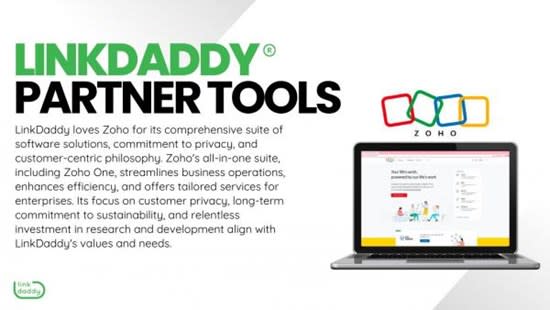Comprehending the Various Kinds Of Cloud Services and Their Uses
From Infrastructure as a Service (IaaS) to Software Program as a Service (SaaS), each type of cloud service offers an unique function and gives unique advantages. By exploring the nuanced capabilities and applications of each cloud service, one can browse the complexities of cloud computer with accuracy and foresight.
Infrastructure as a Service (IaaS)
Framework as a Solution (IaaS) gives customers with virtualized computer resources online on a pay-as-you-go basis. This cloud computing version supplies essential IT infrastructure such as digital equipments, storage space, and networking without the requirement for organizations to purchase and manage physical servers and information centers. With IaaS, users can scale sources up or down based upon their demands, providing versatility and cost-efficiency.
One of the key advantages of IaaS is its capability to rapidly provision and release framework parts, making it possible for companies to respond rapidly to changing demands and market conditions. By outsourcing infrastructure monitoring to the solution provider, companies can focus more on their core service activities as opposed to taking care of the complexities of equipment maintenance and upgrades.
Furthermore, IaaS offers a high level of reliability and security, with service providers typically offering durable information backup, disaster recuperation, and cybersecurity actions. This aids ensure that vital company operations stay continuous and data continues to be protected against potential threats. cloud services press release. Overall, Framework as a Solution simplifies IT procedures, improves scalability, and minimizes capital investment for organizations of all sizes
System as a Service (PaaS)
Structure upon the foundation of Framework as a Service (IaaS), Platform as a Solution (PaaS) offers a detailed setting for designers to create, release, and handle applications without the complexities of underlying infrastructure administration. PaaS supplies a system with devices and solutions that simplify the growth procedure, enabling designers to concentrate on composing code and building applications as opposed to handling facilities issues.

Software Program as a Service (SaaS)
Software Program as a Service (SaaS) transforms the means companies access and make use of software application applications by providing them on a registration basis with cloud suppliers. This cloud computing version gets rid of the need for companies to preserve and install software program on specific gadgets, as everything is organized and handled centrally in the cloud.
SaaS gives a cost-efficient option for companies as they just pay for the software application they use without the included costs of hardware upkeep or software application updates. It likewise uses scalability, enabling companies to conveniently change their software program needs based on their demands.
Furthermore, SaaS applications can be accessed from any kind of device with a web connection, advertising collaboration and adaptability amongst remote teams. Safety and security is a leading priority in SaaS, with providers implementing robust measures to secure data stored in the cloud.
Popular examples of SaaS consist of client relationship administration (CRM) software program like Salesforce, performance tools like Microsoft Workplace 365, and collaboration systems like Google Work area. SaaS proceeds to gain traction in the business world due to its cost-efficiency, scalability, and convenience.
Feature as a Solution (FaaS)
With the advancement of cloud solutions like Software application as you could try these out a Service (SaaS) enhancing software application delivery, Function as a Solution (FaaS) stands for a standard shift this in how code is performed in a serverless environment. FaaS allows developers to create and execute individual functions or items of code in action to certain occasions without the need to manage the framework. This serverless computer design enables programmers to concentrate entirely on creating code to carry out particular performances, without worrying themselves with the underlying framework or server management.
Features are performed in stateless containers that are rotated up and down as required, ensuring optimum resource utilization and cost-effectiveness. By abstracting the framework layer, FaaS simplifies development, speeds up time to market, and enhances total agility in releasing cloud-native applications.
Storage Space as a Service (STaaS)
A fundamental part in cloud computer, Storage as a Solution (STaaS) supplies individuals with a effective and scalable solution for managing data storage space demands. STaaS permits organizations to store and get information from remote servers through the web, removing the demand for on-premises hardware. This service provides adaptability by enabling users to pay only for the storage they utilize, making it an affordable option for organizations of all sizes.

STaaS is particularly advantageous for businesses with fluctuating storage space needs, as it offers a dependable and secure storage solution without the demand for considerable upfront financial investments. By leveraging STaaS, companies can improve their information administration processes, boost availability, and enhance data protection in a cost-efficient fashion.

Conclusion
In verdict, comprehending More about the author the different kinds of cloud solutions and their uses is essential for organizations and people seeking to leverage the benefits of cloud computer. Each sort of cloud service offers unique benefits and performances, satisfying details requirements and needs. By using the right cloud service, organizations can improve their performance, scalability, and flexibility in handling their IT infrastructure and applications. It is essential to analyze the certain requirements and goals prior to selecting the ideal cloud service for ideal performance.
From Infrastructure as a Service (IaaS) to Software Application as a Solution (SaaS), each kind of cloud solution offers an one-of-a-kind objective and provides distinct advantages. universal cloud Service. By discovering the nuanced functionalities and applications of each cloud service, one can navigate the intricacies of cloud computing with precision and foresight
With the advancement of cloud solutions like Software as a Solution (SaaS) simplifying software program distribution, Feature as a Solution (FaaS) stands for a standard change in just how code is executed in a serverless environment.In final thought, recognizing the various kinds of cloud solutions and their usages is necessary for people and businesses looking to leverage the advantages of cloud computing. By utilizing the appropriate cloud solution, organizations can boost their effectiveness, scalability, and versatility in handling their IT facilities and applications.